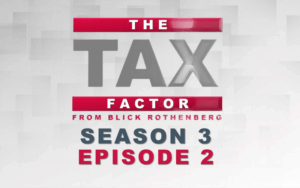
HMRC’s Push for Digital Transformation Risks Ignoring the Core Problem: Tax Complexity
A timely warning for HMRC’s leadership
11 September 2025 | Author: Stefanie Tremain
Calls for modernisation at HMRC are gathering pace, but the tax authority risks focusing on technology at the expense of tackling the root cause of inefficiency: the UK’s overly complex tax system
In a recent letter to the Chair of the Public Accounts Committee, HMRC Chief Executive and Permanent Secretary John-Paul Marks outlined plans to improve customer service and efficiency. Yet, while these ideas represent progress, they may not resolve the fundamental issues holding back both taxpayers and HMRC itself.
Stefanie Tremain, Partner, commented:
John-Paul Marks sent a letter to the Chair of the Public Accounts Committee about improving the UK’s tax system. Although the ideas within it are a good start, it does not address the key issue of an overly complex and costly tax system.
Policy context: efficiency vs. complexity
The letter highlights HMRC’s ambition to harness technology, including Artificial Intelligence and electronic customer relationship management (eCRM) tools, to reduce paperwork and make tax administration more digital.
What we have historically seen this mean is increased nudge letters being generated which are often fishing expeditions that push the onus, costs and time of dealing with an overly complex tax system onto the taxpayer and their advisers.
While digitalisation could make HMRC more efficient internally, it does not simplify the underlying legislation. As a result, businesses and individuals may face additional stress and costs when responding to queries or managing compliance.
Implications for businesses and individuals
For businesses, the stakes are particularly high. Complex tax rules increase the likelihood of errors, disputes, and time-consuming correspondence with HMRC. Smaller firms without dedicated finance teams may be disproportionately affected, spending resources on navigating bureaucracy rather than growth.
Individuals, too, face challenges. As more people are pulled into higher rate tax bands, even those on PAYE may encounter difficulties understanding their obligations.
HMRC do not fully appreciate how complicated the tax system is, and can be, even for PAYE taxpayers. This is only going to get worse with more taxpayers being dragged into the higher rate band.
Potential outcomes: risks of a tech-only approach
While the use of AI and digital platforms could improve some aspects of service – such as reducing postal delays, which have caused missed deadlines and penalties – the danger lies in assuming technology alone will solve structural inefficiencies.
Stefanie Tremain is cautions that without simplifying legislation, HMRC’s resources will continue to be stretched:
A simpler tax system would help HMRC better conserve its resources for genuinely tricky cases, instead of basic cases made difficult for all parties by overly complicated legislation.
Furthermore, questions remain about how HMRC defines and supports “vulnerable” taxpayers, who may not be well served by an increasingly digital-first system.
Why this matters now
At a time when public finances are under pressure, tax revenue collection needs to be efficient and fair. A system that pushes costs onto taxpayers, rather than reducing complexity, risks undermining trust in HMRC and compliance more broadly.
For businesses and individuals, the combination of growing digitalisation and unchanged complexity could mean higher compliance costs, more time spent resolving issues, and increased uncertainty in tax planning.
What you should consider/do next
Review your compliance processes: Businesses should ensure they have strong systems in place to respond quickly to HMRC queries, particularly as digital “nudge” letters become more common.
Factor in potential delays: Be prepared for administrative back-and-forth with HMRC, especially if relying on postal communication or dealing with staff turnover at the tax authority.
Plan for digital interaction: Expect HMRC to push more cases into online systems. Make sure your business—or personal tax affairs—are set up to handle these changes smoothly.
Seek professional advice early: As the system grows more complex, proactive advice can reduce the risk of penalties, wasted time, and unexpected costs.
Would you like to know more?
If you would like to discuss any of the above in more detail, please get in touch with your usual Blick Rothenberg contact or with Stefanie Tremain using the form below.
“
Contact Stefanie

You may also be interested in

Closing the Fiscal Black Hole: Why Tackling the £46.8bn Tax Gap Should Be Rachel Reeves’ Priority

Record £2.4 Billion in Tax Relief Signals Government Backing for UK’s Creative Industries













